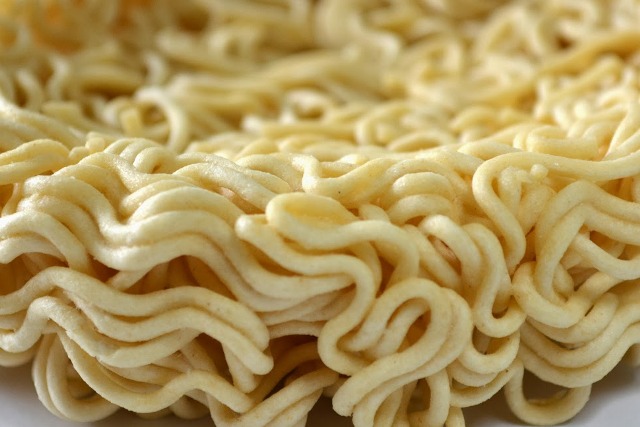By Terence Njogu
The intended introduction of instant noodles into Kenya’s kitchens through the establishment of instant noodles facility in Kenya should not come as good news to Kenyans. Whereas this is being touted as a great initiative at promoting some bilateral cultural exchanges, it is imperative to ask at what price it is to the health of Kenyans.
Foods, Music, dance, language etc. are natural cultural values that nurture friendships and bring people from different parts of the world together; however, we should be prudent to decide which foreign cultural import is suitable for us.
Noodles are type of staple Asian food made from unleavened dough which is commonly cut into long thin strips. However, it can also be cut into waves, cubes, tubes, strings etc. Noodles are usually cooked in boiling water and served with fresh vegetable, cooked meat or soup. They can be refrigerated for short-term storage, or dried and stored for future use.

Instant noodles on the other hand, were invented by Momofuku Ando of Nissin Foods in Japan and first marketed in 1958. According to Ando’s method, a bundle of fresh noodles is flash-fried, which dries them out and provides for a long shelf life. The shelf life of instant noodles ranges from 4 to 12 months, depending on environmental factors. Unlike many other foods that need time and cooking utensil to prepare, instant noodles only require a little hot water for a few minutes to be ready. They are quite tasty and best of all, they are very cheap. However, that is as far as the benefits of instant noodles could go.
The unhealthy components and lack of nutrients make instant noodles an unhealthy choice for more than an occasional indulgence. The price to pay with regards to your health is not worth the convenient and inexpensive meal. Instant noodles are one of the most poisonous foods you can put into your body.
Instant noodles contain propylene glycol, an anti-freeze ingredient that prevents the noodles from drying by retaining moisture. The body absorbs it gradually and it can accumulate in the heart, liver and kidneys. This may cause damage and abnormalities in the organs, and also weaken the immune system. They also inhibit the ability of infants to properly absorb nutrients.
Moreover, instant noodle is a highly processed food that lacks nutritive value. It is high in carbohydrates, sodium and saturated fats but low in fiber, vitamins and minerals. The PFC(Protein/Fat/Carbohydrate) proportion of a typical instant noodle is 9%, 36% and 55% where the ideal PFC balance is said to average 23%, 28% and 55% respectively, making it lower than normal in protein, and higher than normal in fat. The high sodium content in instant noodles is also linked to a variety of diseases such as hypertension, heart disease, stroke and kidney damage.
Therefore, while attempts to bridge the cultural divide between Kenya and foreign countries is plausible, the health interests of the Kenyan people should be put into priority consideration. Surely Kenyans can get a better deal in terms of culinary export from the rest of the world. It is easy to overlook things when we move too fast, but we should slow down and enjoy the best of what the world has to offer.
Instant noodles became popularized by the emerging instant culture in most parts of the world. Today everyone expects things to be instant. Instant coffee, instant wealth without work and savings, losing weight immediately without dieting, and wanting technology to work faster and faster. There is an increased hunger for instant gratification being driven by the fast life. However, instant gratification comes with a heavy price, especially with regards to healthy living. Instant noodle is not an exception.
(The author is a local freelance writer who comments on social and cultural issues.)
